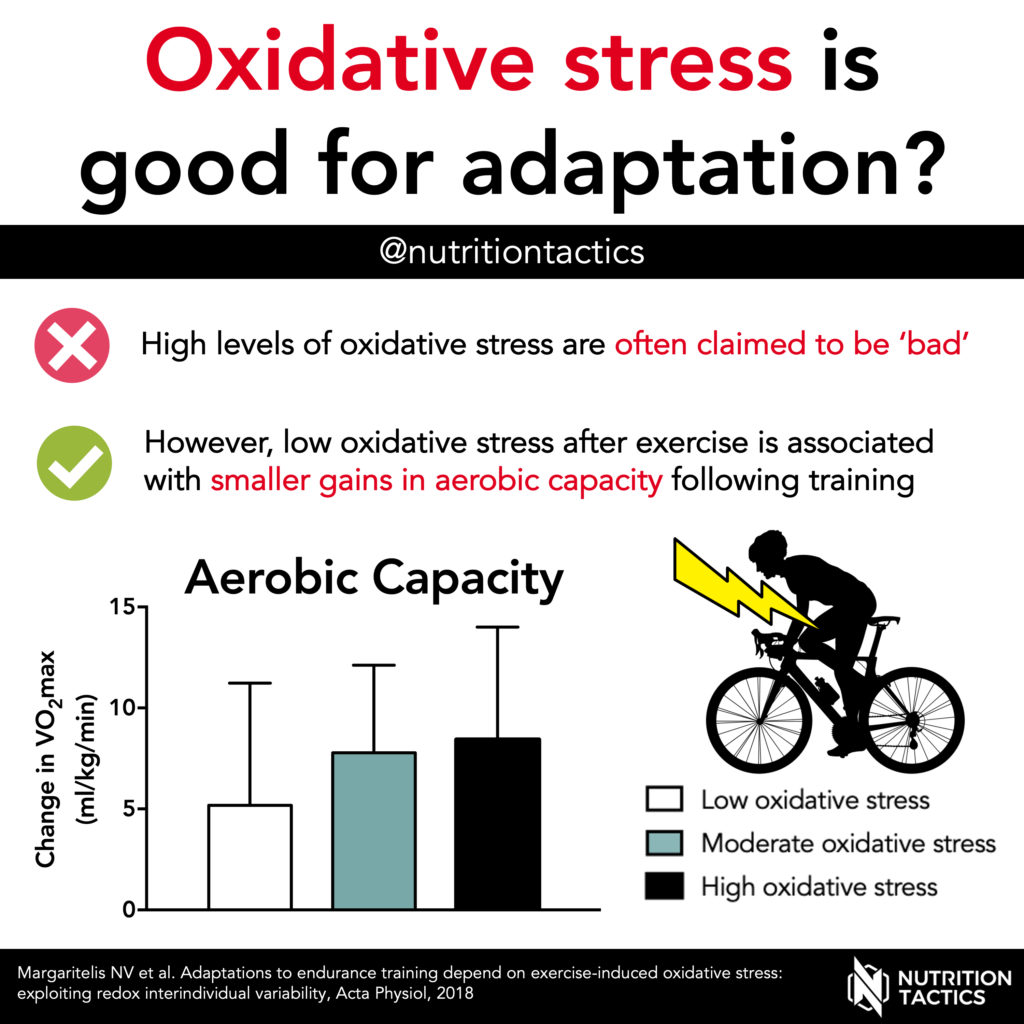Is oxidative stress beneficial for training adaptations?
Oxidative stress has a bad reputation. It’s often suggested that high oxidative stress is harmful. Therefore, a high antioxidant intake is often recommended.
Exercise increases oxidative stress. If oxidative stress is harmful, it can be speculated that individuals with higher oxidative stress after exercise do not adapt well to training.
This study investigated the relationship between postexercise oxidative stress and training adaptations. Healthy young subjects (recreationally active, n=100) participated in a 6-week endurance training program. At baseline, oxidative stress was assessed following a single exercise session. Subjects were then categorized into 3 groups: low, moderate, or high oxidative stress. Aerobic capacity was measured as maximal oxygen consumption (VO2max) before and after the 6 weeks of training.
All groups improved aerobic capacity following the 6 weeks of training. However, the low oxidative stress group showed smaller improvements as compared to the moderate and high groups.
This suggests that (too) low oxidative stress following exercise might be detrimental for training adaptations. It seems that oxidative stress is part of/contributes to the stimulus that triggers adaptation after exercise.
A limitation of the study is that it’s observational: it cannot prove cause-and-effect (which requires intervention studies).
Go to the next infographic in the supplement series:
Anti-oxidants reduce muscle growth?


Leave a Reply